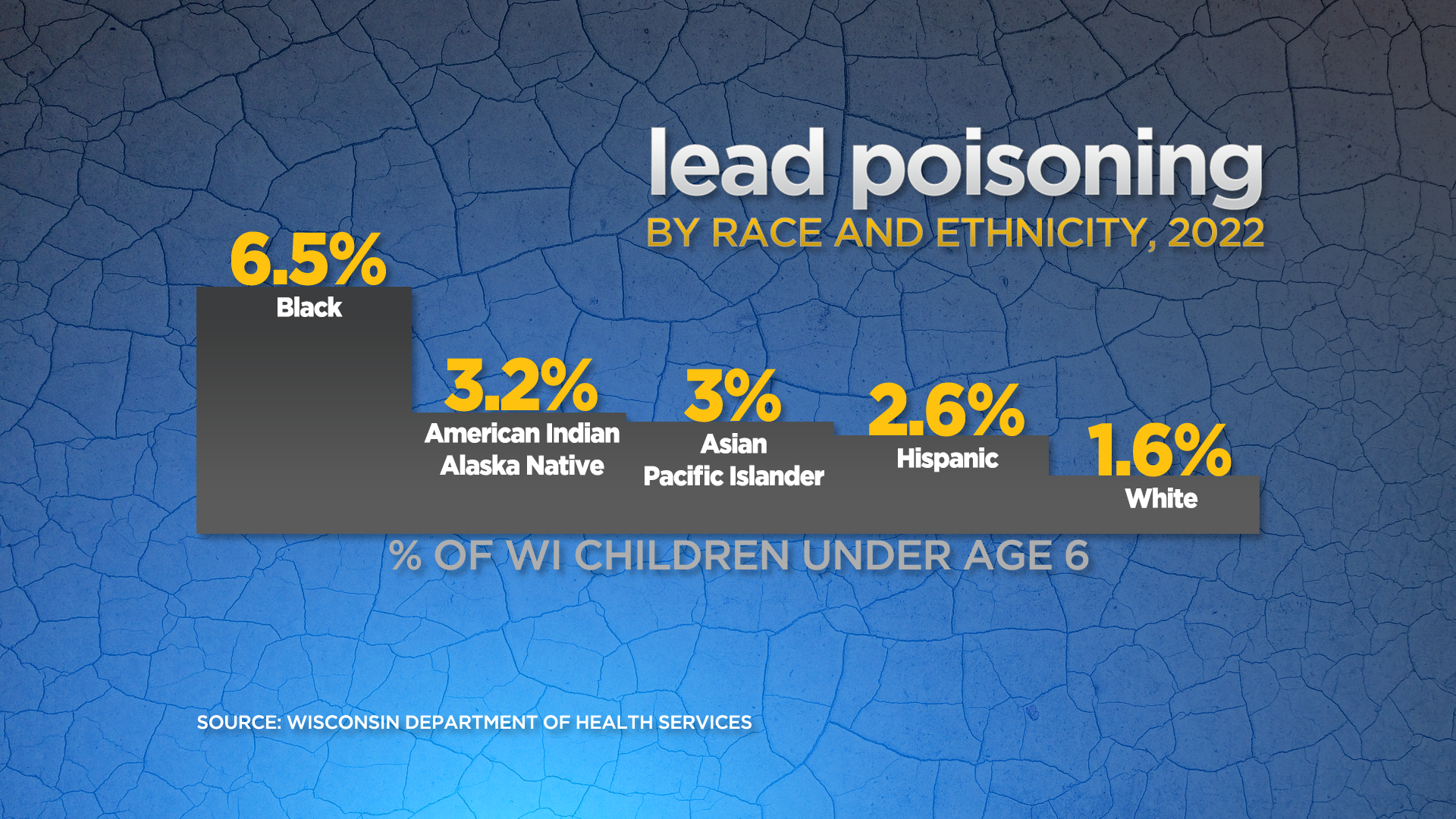Wisconsin DHS launches new tool highlighting childhood lead poisoning
MILWAUKEE (CBS 58) -- The Wisconsin Department of Health Services launched a new tool highlighting childhood lead poisoning, which officials hope spurs policymakers to address the issue which has statewide impact, particularly for low-income residents and residents of color.
The tool, called the Childhood Lead Poisoning Data Explorer, breaks down the state by number of children under the age of six poisoned by lead, how many are tested for poisoning, the age of housing in particular areas of the state, housing insecurity and more.
The data explorer can be found by clicking here.
The tool was presented to legislators on April 21, along with information about recent findings about the topic.
"Hopefully this allows people to use data-informed decisions about how to correctly allocate their funding in an area where they can have the greatest return on investment on hopefully reducing childhood lead poisoning," Brian Weaver, the lead policy adviser at the DHS Division of Public Health, told CBS 58 in an interview.
Among the findings presented by DHS officials was that Black children were found to test positive for lead poisoning at a higher rate than white children, with 6.5% of Black children under the age of six testing positive for lead poisoning in 2022, compared to just 1.6% of white children.
DHS officials emphasize the issue is statewide, but note old, poorly maintained houses and apartments create high-risk environments for children to be lead poisoned.
"We are seeing people of color, who are low-income renters, are really bearing the burden of this disease in Wisconsin with childhood lead poisoning," Weaver said.
Among the thousands of Wisconsin children affected by lead poisoning, is Aidan Branch of Milwaukee.
"Aiden was diagnosed and affected by lead to the point where he had to be hospitalized twice," Aidan's mother Deanna told CBS 58. "He's about to be 10 this year and he still struggles with the effects of being lead poisoned."
Branch and her sons have been vocal in addressing lead poisoning issues. Their efforts were recognized by being invited to President Joe Biden's State of the Union address earlier this year. Deanna said she is proud of her son sharing his story with others but believes more needs to be done.
"It's just really out of proportion here on the north side. I don't feel like we have enough resources," Branch said.
Governor Tony Evers has included significant spending to address different aspects of the issue in his proposed state budget, saying while the federal government has provided funding to help, the state also needs to make an investment.
"We believe that state funding should be used to finish the job," Governor Tony Evers told reporters at an event Monday. "I mean, we've been working on this for years, there's no reason why we can't make a major investment and get rid of the lead."
The governor's proposed budget includes $17.1 million for lead poisoning prevention and response that will require an environmental lead investigation for a lead testing threshold and will increase public health funding; $9.2 million for programs for children with a certain blood lead level; $200 million for funding to support the Department of Natural Resources' lead service line replacement program for municipal water systems and $100 million to invest in the Wisconsin Housing and Economic Development Authority's workforce housing rehabilitation loan program to renovate and repair older homes, including lead remediation.
The governor's proposed budget will have to go through the Republican-controlled state Legislature.
















